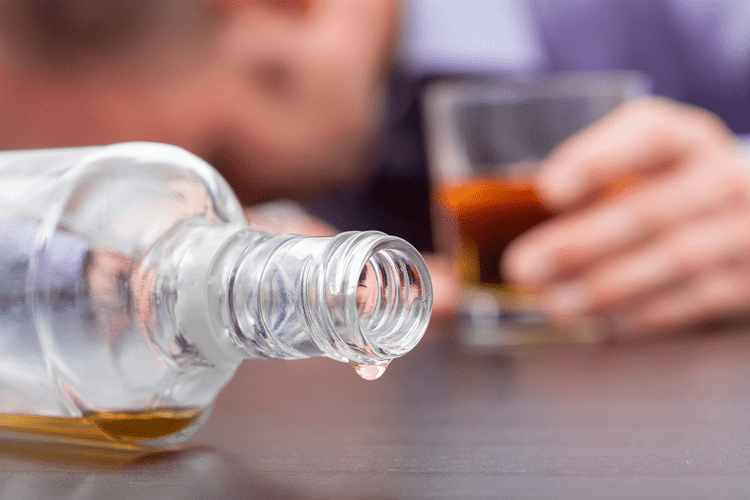Content
The most destructive form of alcoholism is chronic alcoholism, an emotionally, socially and physically devastating disease. Alcoholism emerges from alcohol abuse, when there’s a pattern of drinking despite negative consequences. Alcoholism addicted to wine and alcohol abuse are both categorized as alcohol use disorders—affecting people of all ages and stages of life. The severity of the disorder lies on a spectrum, ranging from mild to severe dependence, also known as chronic alcoholism .

Some medications interact with alcohol, increasing its toxic effects. Drinking while taking these medications can either increase or decrease their effectiveness, or make them dangerous. Excessive drinking can affect your nervous system, causing numbness and pain in your hands and feet, disordered thinking, dementia, and short-term memory loss. Alcohol interferes with the release of glucose from your liver and can increase the risk of low blood sugar . This is dangerous if you have diabetes and are already taking insulin to lower your blood sugar level. Can you have a holly jolly holiday when you’re recovering from an addiction? Start each day with a plan to stay sober when temptation abounds.
Causes And Risk Factors For Alcohol Addiction
There are also many rehabilitation centers and programs that are experienced specifically in treating alcoholism. While it’s legal and common to drink alcohol, addiction to alcohol may be among the deadliest drug addictions there is. Its potential for abuse, withdrawal, and long-term health consequences means you have every reason to present your concerns to your loved one and offer to get them help.
Government should promise they will ban wine liquor cigarette etc permanently and they will never sell it again , first you make people addicted to these things for revenue and then u close them what about people who have addiction , what about withdrawal symptoms #wineshops
— #Indian (@Vaibhav4645) April 12, 2020
Many people don’t realize they’re struggling with multiple disorders until they begin to receive care. Failing to properly identify and address dual diagnosis concerns can undermine your ability to achieve successful long-term recovery from alcohol addiction. Alcohol is one of the most commonly abused substances in the United States and in many other nations. However, the virtual omnipresence of alcohol does not mean that consuming this substance is a risk-free behavior.
Abuse Versus Dependence Versus Addiction
Understanding alcohol use and seeking available resources are instrumental ways to diminish the influence of alcohol. After detoxing, treatment should continue with inpatient or outpatient rehabilitation. These programs can help to treat not only an addiction but also its root causes. Participating in aftercare programs, such as support groups and therapy, can help to lower the chance of relapse after rehab. If someone you care about is exhibiting alcoholism symptoms, there are resources available to help you find treatment and support.

You or a loved one may simply feel ill, worn down or tired all the time. They can be clear, obvious warnings of an alcohol abuse problem. If you think a family member or loved one might be showing signs, signals or symptoms of alcoholism, know that it won’t “go away” on its own. Their brain is changing—and without help, there can be serious long-term consequences. This syndrome is sometimes referred to as the post-acute-withdrawal syndrome. Some withdrawal symptoms can linger for at least a year after discontinuation of alcohol. Symptoms can include a craving for alcohol, inability to feel pleasure from normally pleasurable things , clouding of sensorium, disorientation, nausea and vomiting or headache.
Alcohol Addiction And Withdrawal
O Children that are exposed to alcohol in the womb have a greater chance of death from SIDS, especially if their mother binge drank during her first trimester. Heavy drinking can interfere with a woman’s normal menstrual cycle and may cause fertility problems. Giving up social or recreational activities in order to drink. Consistently drinking despite the strong likelihood of bad outcomes.
- Once it takes hold, it can be hard to shake loose—without the right help.
- Sober communities can also share relatable experiences and offer new, healthy friendships.
- They hide their alcohol or attempt to conceal how much they are drinking.
- We know the struggle, which is why we’re uniquely qualified to help.
The individual may also drink in secret, either in a private place or out in public but away from concerned friends and family. A tipoff that a person’s behavior has progressed to an alcohol use disorder concerns their nutritional habits.
Effects Of Alcohol Addiction
Alcohol abuse is defined as any use that causes negative consequences to the user. Just because someone abuses alcohol does not mean they are dependent on or addicted to alcohol, but it is generally the first step towards the development of an issue later. Denial is one of the biggest obstacles to getting help for alcohol abuse and alcoholism. The desire to drink is so strong that the mind finds many ways to rationalize drinking, even when the consequences are obvious. By keeping you from looking honestly at your behavior and its negative effects, denial also exacerbates alcohol-related problems with work, finances, and relationships.
COVID-19’s Continuing Toll: Increasing Alcohol Use and Liver Disease Disproportionately Affect Women – Psychiatry Advisor
COVID-19’s Continuing Toll: Increasing Alcohol Use and Liver Disease Disproportionately Affect Women.
Posted: Thu, 29 Jul 2021 07:00:00 GMT [source]
Our liver filters out harmful substances, cleans our blood, stores energy and aids in digestion. Too much alcohol can be toxic to liver cells, causing dehydration and permanent scarring—which ultimately affects the blood flow. With excessive alcohol consumption, this important organ can’t metabolize Vitamin D, which could develop into a deficiency.
Common Withdrawal Symptoms
Our sole focus is getting you back to the healthy, sober life you deserve, and we are ready and waiting to answer your questions or concerns 24/7. Globally, 107 million people are estimated to have an alcohol use disorder.

Wine is causing you to miss work, school, or social events. Alcoholic blackouts happen when you consume too much alcohol too quickly. They don’t happen to everyone, and the relationship between Sobriety blackouts and addiction isn’t clear. But if your friends are regularly telling you how wild you were the night before, and you have no recollection of the evening, you may be blacking out.
Call a treatment provider now to find alcohol treatment facilities nearby. Any alcohol is dangerous when abused, whether it’s liquor, beer, or wine. With alcohol abuse, a person isn’t necessarily addicted to the drug, but it still causes major problems in their life. Abusing alcohol can result in physical, mental and spiritual distress as well as problems at work, home or school. Alcohol addiction may involve several different treatment methods. It’s important that each person get involved in a recovery program that will support long-term sobriety. This could mean an emphasis on therapy for someone who is depressed, or inpatient treatment for someone with severe withdrawal symptoms.
Cherry Wine #CBD #WholePlant real medicine. No pesticides, no metals, no hypermesis ..this is the CBD that actually works. Commonly for parasitic infection symptoms, #anxiety medication cessation, #RageSyndromes from infection, #addiction & #painmanagement. DM for details. #Maine pic.twitter.com/hT78yathan
— StrainKeeper (@StrainKeeper) September 27, 2018
The medications most commonly used for alcohol withdrawal are benzodiazepines, sedatives that calm anxiety and nervous system excitability by slowing down nerve impulses. Short-term side effects may include drowsiness, dizziness, and dry mouth. “Medications are very important during alcohol withdrawal, the period called cold turkey. Long-term abuse of alcohol has a sedative effect on the body. It may sound counterintuitive since alcohol is a drug, but medication is an essential part of alcohol addiction treatment. Because alcoholism rewires the brain and affects a person’s mood, thinking and behaviors, it’s classified as a mental illness.
Binge Drinking And Alcohol Poisoning
Major complications like acute pancreatitis, esophageal or stomach cancer sometimes develop more quickly than a person realizes. That’s not even taking into account all the trouble a person experiences when they try to drive or complete another task that requires concentration (not to mention that it’s illegal). Alcohol addiction’s psychological signs can either mask a mental health condition by covering up its symptoms or intensify symptoms of a co-occurring disorder. Accurately identifying all present psychological disorders is extremely challenging when alcohol abuse is still happening.
They can be tapered down slowly until the danger is past,” Weaver explains. Heavy drinking in conjunction with other behaviors can also signal a problem. Symptoms most often occur within 48 to 96 hours after the last drink. Delirium tremens may also be caused by head injury, infection, or illness in people with a history of heavy alcohol use. Note that eating, sleeping, or drinking caffeine will not speed up this process.
